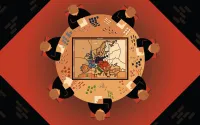Don't panic! The far right's rise is just a historical blip
Friday May 10, 2002The GuardianTen years ago I set off on an assignment to do a series of articles on the rise of the far right in Europe. I was at a conference in Paris, where the Le Pen phenomenon was analysed. In Bremerhaven, I remember touring handsome council estates, where the streets were named after Friedrich Engels, Rosa Luxemburg and other leftwing heroes and where an unhappily large proportion of the inhabitants had rewarded the Social Democrats who had provided their flats by voting for the extremist Deutsche Volksunion party. In Denmark I interviewed Lebanese refugees who had taken sanctuary in a Lutheran church to avoid deportation by a government taking a tougher line on asylum. In Vienna, I went to a Freedom party rally that was both very well organised and very well attended. I came home, like other journalists who were working on the same stories, in a worried frame of mind. Yet looking back from the vantage point of today's sudden preoccupation with far-right breakthroughs and intolerance of migrants, I am inclined to be more sanguine, both about then and about now. It is not that developments of this kind are not bad developments. Of course they are, but that does not mean they are markers on the road to disaster. Over the years the spikes in the seismographic record of far-right activity in postwar Europe, and the overlapping ups and downs in the treatment of immigrants, have been numerous indeed. There is hardly a country which has not felt, at one moment or another, that it was genuinely in trouble, whether it was Britain at the time of Enoch Powell's speeches and the dockers' march, France when the National Front genie was first let out of the bottle, Germany when the far-right parties first registered serious successes or Belgium when the Vlaams Bloc emerged. Sometimes such events have been viewed as symptoms of a specific national problem. Other Europeans could exercise their prejudices against Germany, for instance, by suggesting that, in Brecht's phrase, "the old bitch" of Nazism was "still on heat". Or Britain's difficulties could be seen as the result of the failure to adjust to the reversal of fortune represented by the arrival in the old metropolis of so many former colonial subjects. More often, a cluster of similar developments becomes, without much thought, a pan-European crisis. Europe examines its face in the mirror to note a pustule on the cheek, one on the forehead, another on the chin. Could this be, is this, finally and horribly, the plague? Europe was already at the mirror before the French presidential elections. To some eyes, Austria, Italy, Switzerland, Denmark and Holland all showed the mark. Fear - of crime, immigration and unemployment - was certainly shaping the French and German campaigns. Then came the upset of the French first round, and the shock of Pim Fortuyn's death. But isn't there too much pattern-making here? In the first place it ignores the powerful countervailing tendencies, not only in formal politics or in anti-racist organisations but in the way diversity is so entrenched, frictions and quarrels included, in so many places. Second it sees only the successes of extremism and misses the failures. In Austria, Jörg Haider rails at those in his party who have betrayed him by becoming so-called moderates. It is the considered opinion of many Austrians that his strange career is all but over, and that his party is in the process of being cut down to size. In Switzerland, Christoph Blocher, the billionaire leader of the Swiss Peoples party, lost his campaign to stop Switzerland joining the UN. In Denmark the recent general election was inevitably influenced, in a country where immigration has long been especially sensitive, by its closeness in time to the twin towers attack. The resulting government may have some objectionable policies but it is a long way on the spectrum from the far right. Holland's problems arose not so much from a hostility to immigrants but from the collision between its pluralist tradition and the ways, real or imagined, of Muslim residents. Fortuyn flamboyantly dramatised the encounter between the sexual and social freedoms of the west and Islamic beliefs. This thought surely leads in the right direction. National purpose is a grail always a little beyond reach, but countries seek a synthesis balancing key interests and values which works for them, is convincing to their citizens and may well attract foreign admiration, as did, for example, the Swedish model or the German economic miracle. By their nature such achievements are complicated, often a little fraudulent or at least fortuitous in some of their elements and perishable. Europe's story is in part that of the rise and fall of such models, and of their repair, replacement, reinvention. We happen to be at a time, although it is not the first time, when some of these packages are more than a little undone. Holland's central tradition of tolerance, arising historically from the solution to intra-Christian differences, seemed for a while an excellent way of accommodating minorities of all sorts. But whether in drug treatment, the accommodation of immigrants or the maintenance of an effective military, the limitations of Dutch solutions are clear. Denmark's deep attachment to solidarity and its leery attitude to outside controls, again arising historically from the vital national task of resisting being pulled into the orbit of Prussia and then united Germany, is at odds with trends, especially migratory movements and European integration. In the bigger European countries such dislocations are also obvious. France for years successfully reconciled, with a mixture of brilliance and guile, a sharp pursuit of national interests with a strong commitment to the development of the European community. It is a commonplace to note that the reunification of Germany and the proposed expansion of the union has made that more difficult, and perhaps impossible in the old manner. Germany made of her commitment to the union and other international institutions, her admirable levels of social spending and her economic success a seamless national garment, which is now somewhat torn, thanks to the problems thrown up by global economic developments and reunification. In this context of a general difficulty affecting most national projects, Britain's arguments over monarchy and Europe seems less out of step with the rest of the continent than of a piece with it. When national projects waver, even if only a little, and the continental project with them, opportunists, eccentrics and extremists have a chance. This is particularly the case when mainstream parties show a degree of muscle wastage, largely due to economic changes eroding their traditional constituencies. The difficulties of the moment are always special, but difficulties of national purpose are recurrent. The record shows them, together with solutions, inspired or otherwise, recoveries and new starts. It also shows one or two moments, when they did indeed presage terrible things. But there is nothing to suggest that the stumbling and fumbling evident now means that a political catastrophe for Europe is on the horizon. [email protected] Guardian Unlimited © Guardian Newspapers Limited 2002






